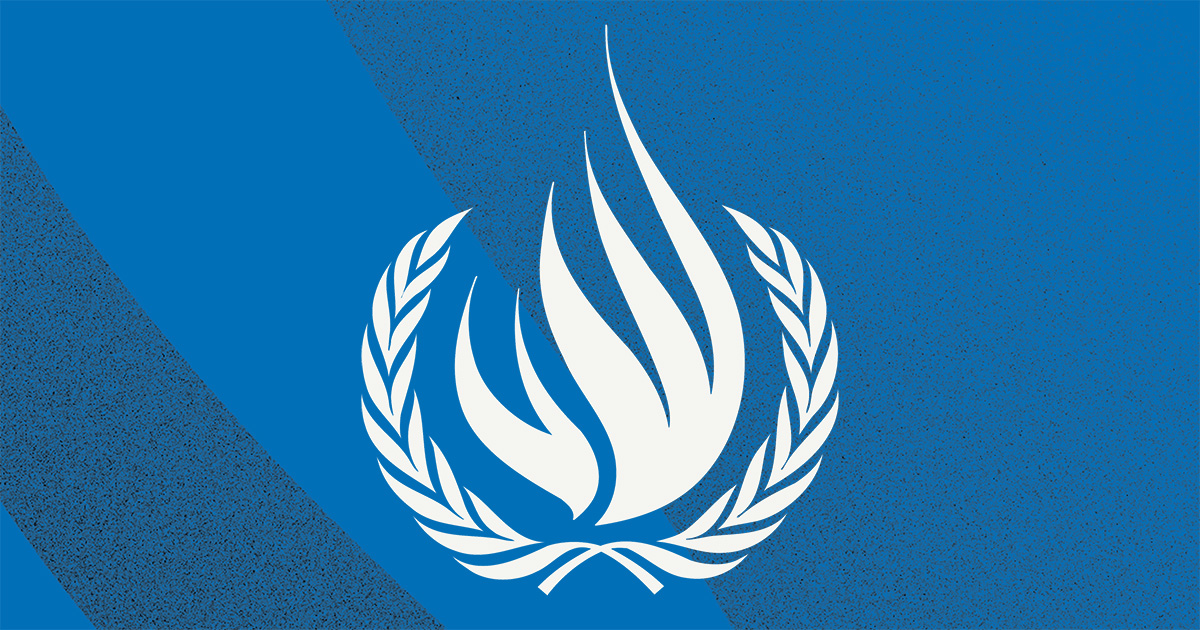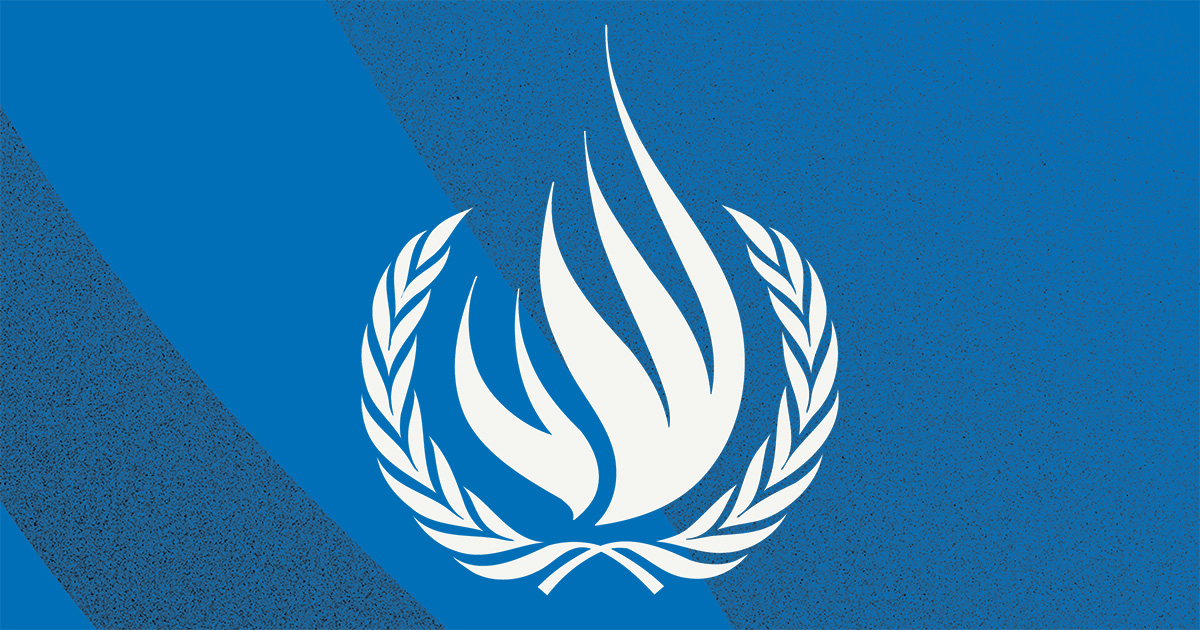
GENEVA – Unprecedented displacement and suffering as Israel dramatically escalates its military campaign in Lebanon have drawn sharp condemnation from UN experts for violations of international law.
“The number of internally displaced persons in Lebanon has more than tripled in less than a month due to Israel’s relentless attacks on populated areas coupled with belated or ineffective evacuation orders, in violation of the principles of distinction and proportionality,” the experts said.
More than 1,600 people have been killed in Israeli strikes on Lebanon since October last year. At least 346,000 have been internally displaced and plans are underway to shelter up to one million IDPs. Hundreds of thousands have crossed into Syria. Many of those displaced were already refugees, some of whom have encountered xenophobic discrimination during the latest crisis. Over two-thirds are women and children, who face distinct and gendered impacts.
“Israel’s latest breach of international law – a ground invasion in violation of Lebanon’s sovereignty and territorial integrity and Security Council resolution 1701 – will only add to this mounting toll of death and displacement,” the experts said.
Even before the current conflict, Lebanon was grappling with social and economic instability and hosting millions of refugees. The experts emphasised that further damage to Lebanon’s institutions could overwhelm the country’s ability to respond to this crisis.
“While the humanitarian response has been commendable, Israel has impeded relief efforts through attacking vital civilian infrastructure, including roads, bridges, and water and health facilities, as well as health and humanitarian workers themselves,” said the experts. “These are clear violations of the international obligation to respect and protect relief personnel that risk collapsing the system to protect and assist displaced persons.”
The experts voiced their concern for those displaced within Israel but emphasised that their plight does not absolve Israel of its international obligations.
“We unequivocally condemn indiscriminate attacks by non-State armed groups based in Lebanon that have displaced some 63,000 within Israel,” said the experts. “Perpetrators should be held accountable, and those displaced should receive protection and assistance.
“However, Israel cannot use such crimes to justify its own atrocities in Lebanon, including acts of violence intended to spread terror among civilians and indiscriminate warfare. To do so would amount to collective punishment, another grave violation of international law. Further perpetuating cycles of violence and retribution is unlawful and prevents the realization of durable solutions for those displaced in Israel and Lebanon.”
The experts deplored Israel’s relentless campaign against the most fundamental protections for civilians and called on Israel’s allies to end their complicity.
“The Universal Declaration of Human Rights and the Geneva Conventions, like the state of Israel, arose in response to the horrors inflicted on civilians during the Second World War. It is a terrible and tragic irony that Israel is operating as though every provision of these instruments were null and void,” the experts said.
“Maintaining international peace and security requires the international community and Israel’s allies in particular to act now to halt further military incursions, ensure the unconditional protection of all civilians, accountability for violations of international law, and an immediate and unconditional ceasefire as the only path forward for Lebanon and the region.”
*The experts: Paula Gaviria Betancur, Special Rapporteur on the human rights of internally displaced persons; Cecilia M. Bailliet, Independent Expert on human rights and international solidarity; Tlaleng Mofokeng, Special Rapporteur on the right of everyone to the enjoyment of the highest attainable standard of physical and mental health; Nicolas Levrat, Special Rapporteur on the human rights on minority issues; Gina Romero, Special Rapporteur on the rights to freedom of peaceful assembly and of association; Morris Tidball-Binz, Special Rapporteur on extrajudicial, summary or arbitrary executions; Laura Nyirinkindi (Chair), Claudia Flores (Vice-Chair), Dorothy Estrada Tanck, Ivana Krstić, and Haina Lu, Working group on discrimination against women and girls; Surya Deva, Special Rapporteur on the right to development; Astrid Puentes Riaño, Special Rapporteur on the human right to a clean, healthy and sustainable environment; Reem Alsalem Special Rapporteur on violence against women and girls, its causes and consequences; Michael Fakhri, Special Rapporteur on the right to food; Margaret Satterthwaite, Special Rapporteur on the independence of judges and lawyers; George Katrougalos, Independent Expert on the promotion of a democratic and equitable international order; Pedro Arrojo-Agudo, Special Rapporteur on the human rights to safe drinking water and sanitation; Jovana Jezdimirovic Ranito (Chair-Rapporteur), Ravindran Daniel, Michelle Small, Joana de Deus Pereira, Working Group on the use of mercenaries; Farida Shaheed, Special Rapporteur on the right to education; Geneviève Savigny (Chair-Rapporteur), Carlos Duarte, Uche Ewelukwa, Shalmali Guttal, Davit Hakobyan, Working Group on the rights of peasants and other people working in rural areas; Alexandra Xanthaki, Special Rapporteur in the field of cultural rights; Siobhán Mullally, Special Rapporteur on trafficking in persons, especially women and children; Mr. Olivier De Shutter, UN Special Rapporteur on extreme poverty and human rights, Ashwini K.P., Special Rapporteur on contemporary forms of racism, racial discrimination, xenophobia and related intolerance.
The Special Rapporteurs are part of what are known as the Special Procedures of the Human Rights Council. Special Procedures, the largest body of independent experts in the UN Human Rights system, is the general name of the Council’s independent fact-finding and monitoring mechanisms that address either specific country situations or thematic issues in all parts of the world. Special Procedures experts work on a voluntary basis; they are not UN staff and do not receive a salary for their work. They are independent from any government or organization and serve in their individual capacity.
For more information and media requests please contact: Krishnan Raghavan (krishnan.raghavan@un.org)
For media enquiries regarding other UN independent experts, please contact Dharisha Indraguptha (dharisha.indraguptha@un.org) or John Newland (john.newland@un.org)
Follow news related to the UN"s independent human rights experts on Twitter: @UN_SPExperts











